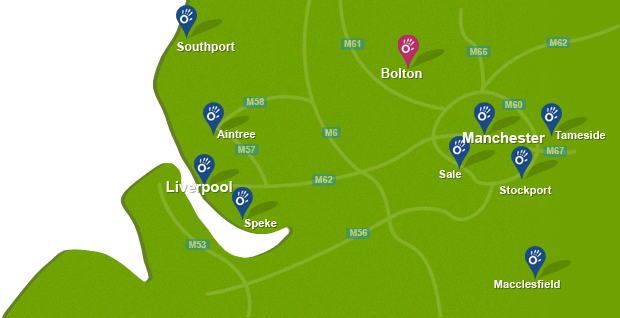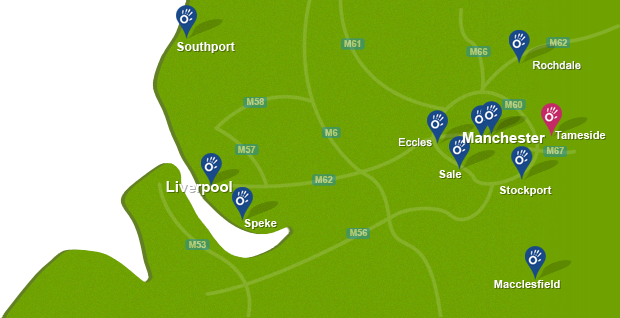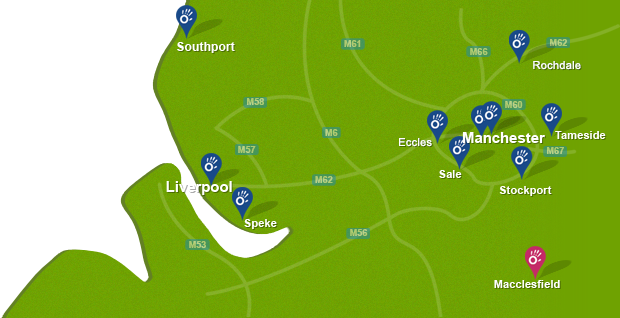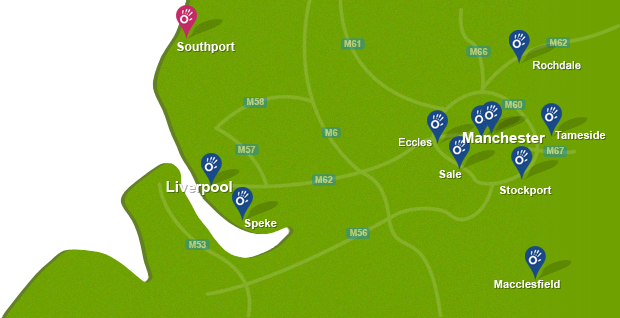Introduction to Dyspraxia
Dyspraxia, also known as developmental coordination disorder, is impairment in the planning, organisation and execution of movement due to poor processing of information in the brain which affects a child's ability to perform the normal range of physical activities expected for their age range.
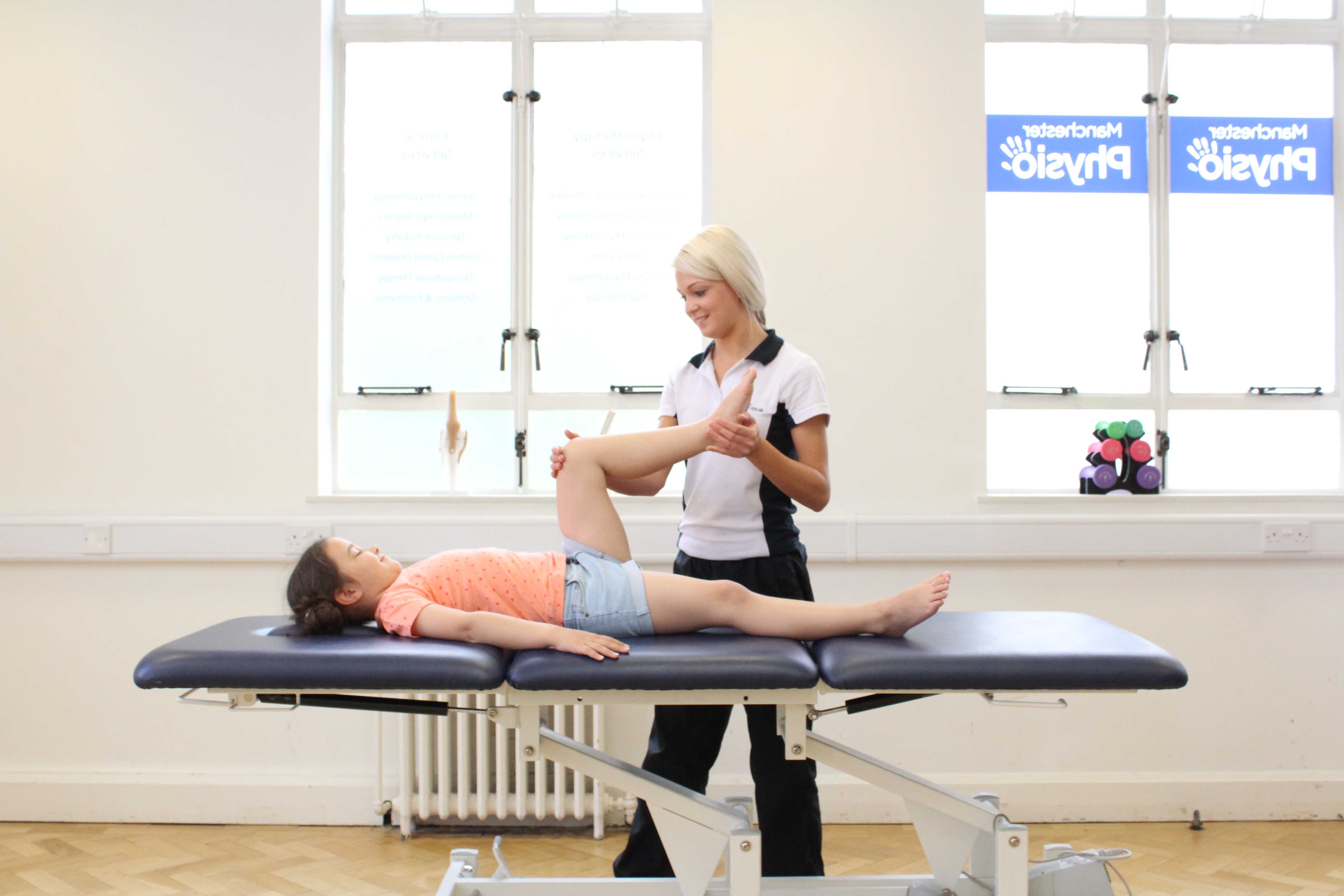 Above: Passive stretches and mobilisations to relieve pain and stiffness
Above: Passive stretches and mobilisations to relieve pain and stiffnessDyspraxia has two elements including:
- Ideational dyspraxia: difficulty planning the sequence of coordinated movement
- Idea-motor dyspraxia: difficulty carrying out the movement even though the sequence is known
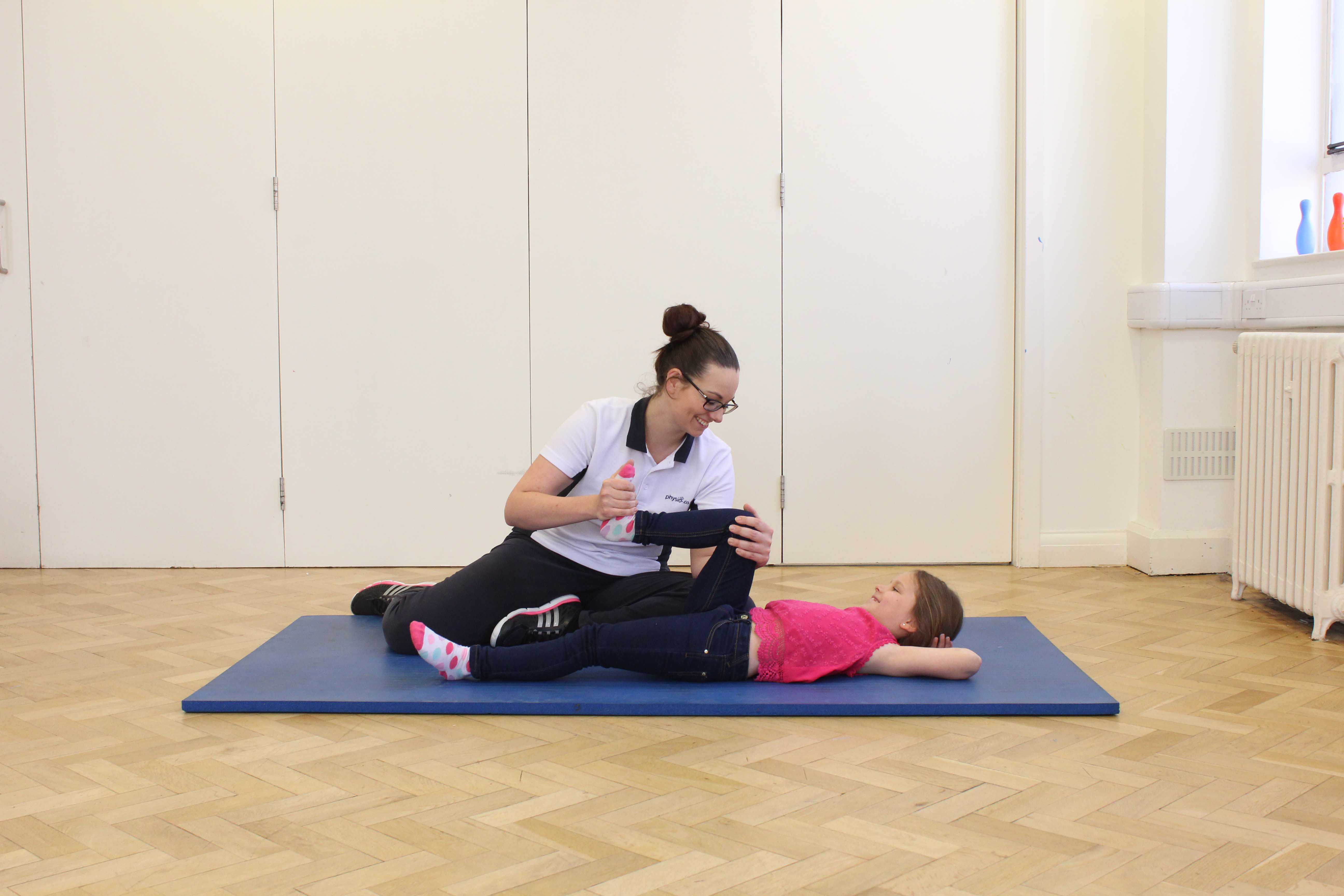 Above: Stretches and mobilisations to relieve pain and stiffness
Above: Stretches and mobilisations to relieve pain and stiffnessWhat are the symptoms of dyspraxia?
Dyspraxia can affect different areas of development; below is a list of common symptoms that may be apparent in children with dyspraxia:
Speech and Language Skills
- Difficulty making sounds, sequencing sounds and forming words in sentences
- Difficulty controlling breathing during speech
- Slower development of language
- Problems with feeding, messy eating
- Difficulty developing hand writing skills (learning the basic patterns of movement, speed of writing and establishing correct pencil grip)
- Difficulty with tasks requiring dexterity and fine coordination e.g. tying shoe laces, brushing teeth
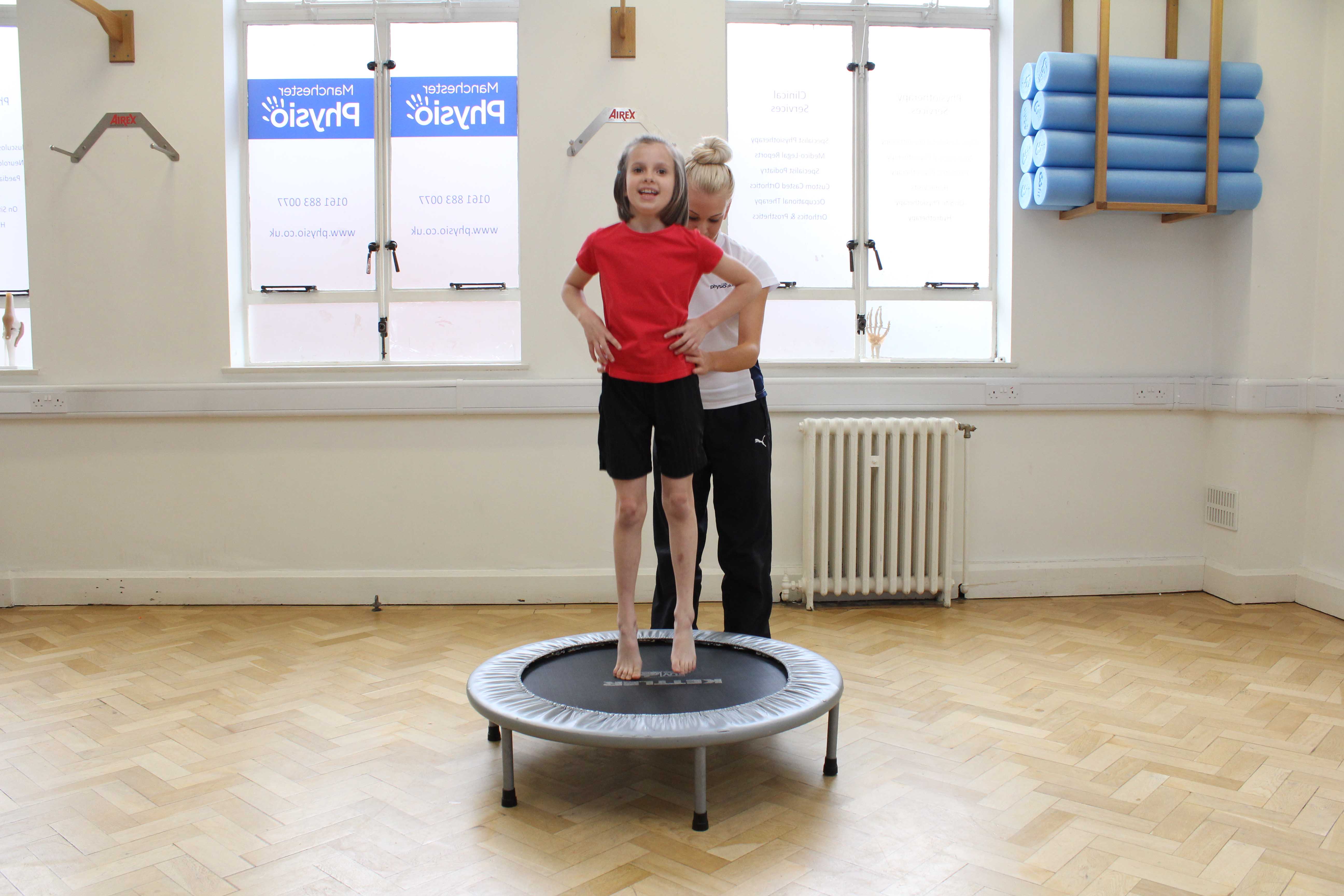 Above: Paediatric physiotherapist supervising mobility exercises on the trampette
Above: Paediatric physiotherapist supervising mobility exercises on the trampetteGross Motor Skills
Development of gross motor skills include the acquisition of major milestones such as walking, running and jumping, which may be affected in children with dyspraxia. Problems may include:
- Slower acquisition of developmental milestones e.g. learning to sit, crawl, walk
- Poor balance and timing, tripping over easily
- Poor coordination and sequencing of movements
- Clumsiness and poor spatial awareness
- Problems picking up simple objects
- Problems learning left from right
- Slower development of laterality i.e. right or left handedness
- Poor short term memory
- Poor concentration, easily distracted
- Difficulty following instructions
- Poor ability to organise time
- Increased likelihood of losing things
- Sensory integration dysfunction leading to oversensitivity to stimuli such as light, sound, touch, temperature
- Poor perception of distance, difficulty crossing roads
- High levels of motor activity - difficulty sitting still
- Limited creative and imaginative play
- Isolation within peer group, difficulty forming friendships
- Slower completion of class work at school, problems finishing tasks
- Easily distressed and emotional, increased irritability
How is dyspraxia diagnosed?
If a child is showing problems in the planning and organisation of movement further investigation is necessary to allow prompt recognition and early intervention in dyspraxia. Problems may be identified by a child's parent, health visitor or teacher. Appropriate referral to a paediatrician or child development unit may be made. Assessments for dyspraxia typically include establishing a history of developmental milestones, motor skills screening activities and a comparison to normal rates of development to establish areas of difficulty.
Physiotherapy Treatment for Dyspraxia
There is no cure for dyspraxia, however symptoms may improve with growing maturity and can lessen with appropriate advice and treatment. Research has shown that physiotherapy treatment has a positive effect on gross motor skills, fine motor skills and dexterity, activities of daily living and self-confidence.
Prior to treatment an initial assessment will be carried out to determine the child's skills and whether they are performing with the expected quality for their age range. Specific tests will be used to assess the child's motor, sensory and perceptual abilities.
Once the assessment has been completed problem areas will be identified and a treatment plan will be devised in discussion with the child and their parents. Treatment will focus on improving the child's motor abilities which will in turn lead to improvements in self-esteem and confidence.
Treatment may include:
- Practising gross motor skills such as walking, running, hopping
- Balance activities
- Fine motor skills activities
- Coordination skills e.g. throwing and catching ball
- Strengthening activities to improve movement control
- Activities to improve postural control
- Advice and education to parents and teachers on management of dyspraxia
- Liaison and referral with other health professionals such as occupational therapists and speech and language therapists
- Advice on appropriate equipment to improve abilities
Benefits of physiotherapy for dyspraxia include:
- Improved gross motor skills
- Improved fine motor skills and manual dexterity
- Improved balance and postural control
- Improved strength
- Improved posture
- Improved coordination of movement
- Improved confidence and self esteem
- Improved spatial awareness
- Improved participation in school activities
Why Manchester Physio?
- Specialist assessment with no waiting list
- Treatment on an individual basis
- Dedicated, patient centred approach
- Treatment at any age
- Specialist physiotherapists
- Highly motivated and committed therapists
- Proven track record
Manchester Physio can provide treatment of dyspraxia across Greater Manchester and Cheshire. We can provide assessment and treatment at our clinic or at your home for your convenience.
See our testimonials to read about the experiences of current and past patients.
To find out more please contact us or arrange a free phone consultation.

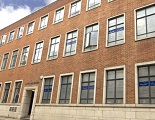
 0800 033 7800
0800 033 7800

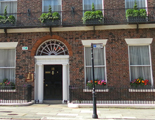
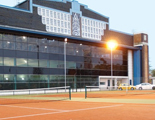






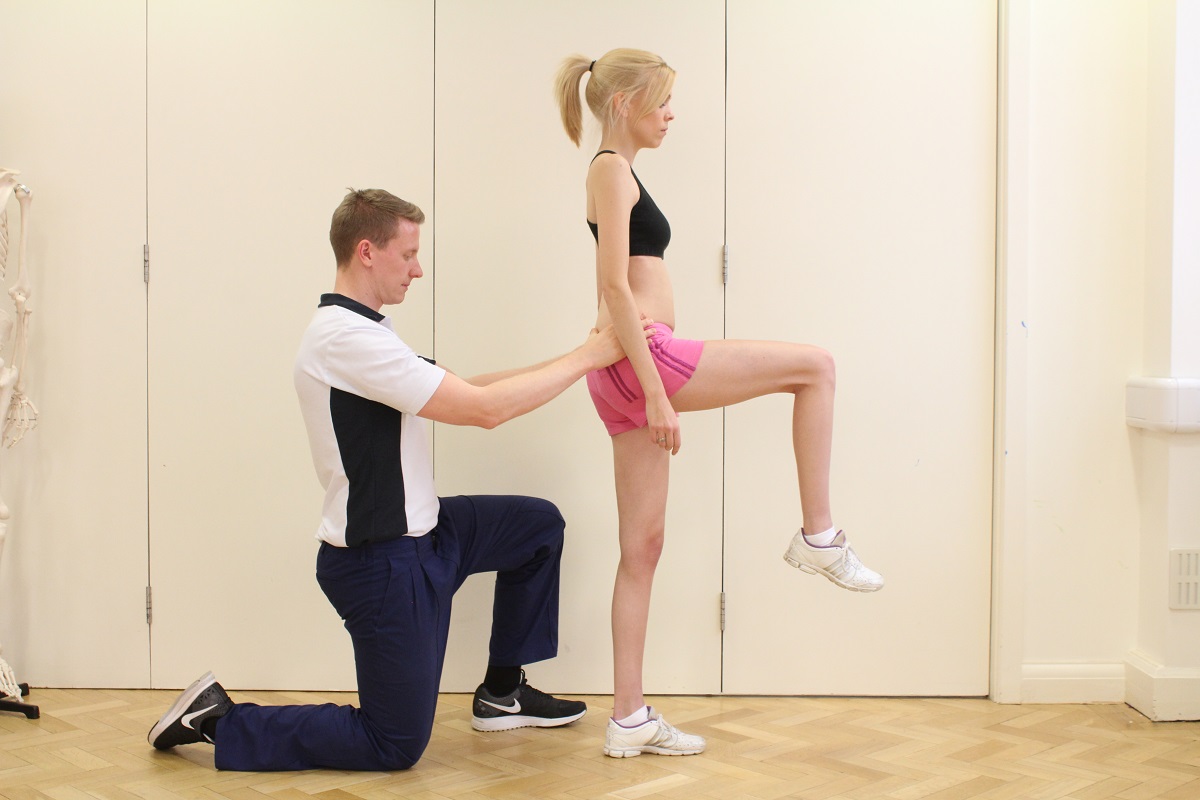
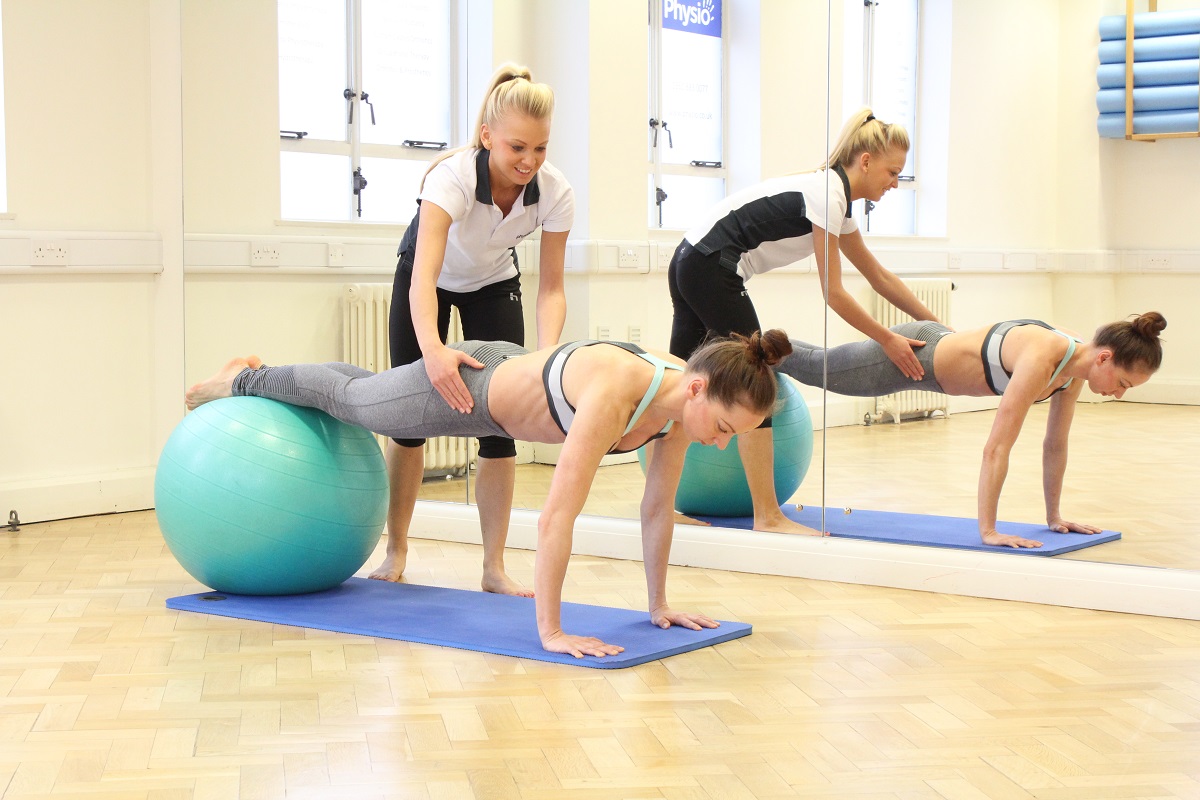
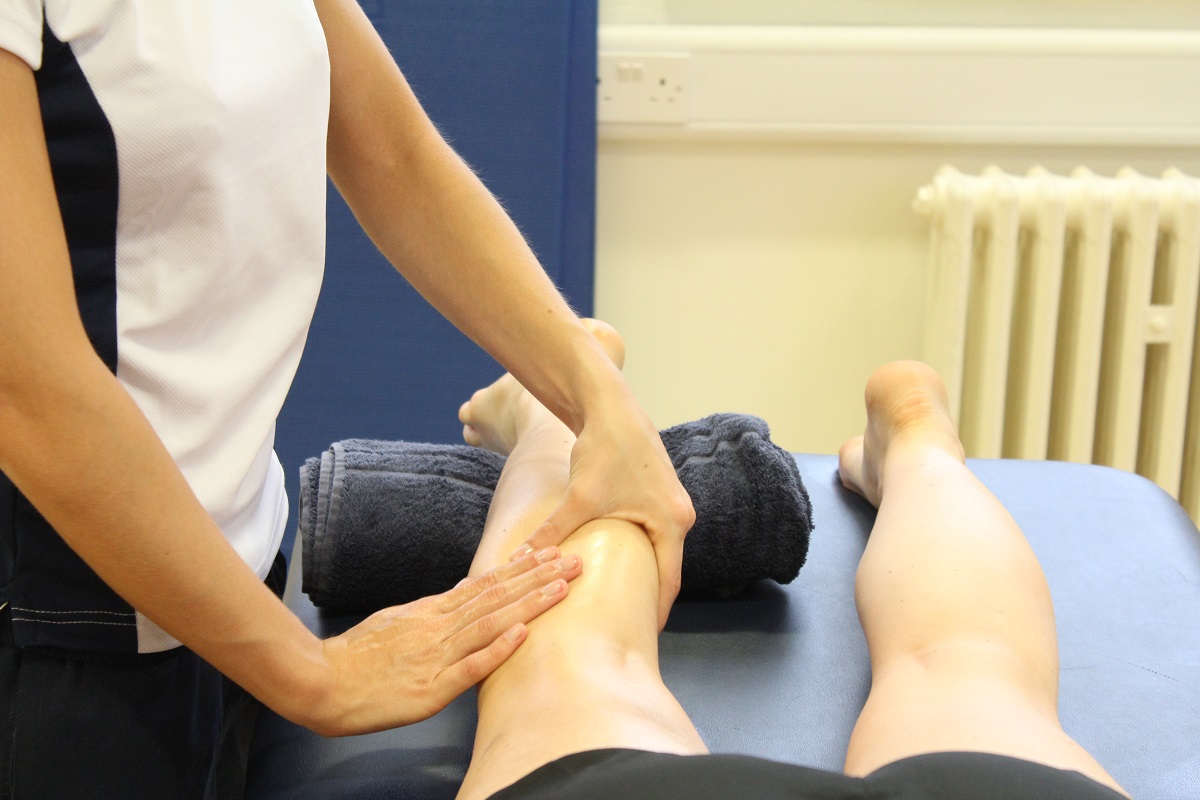
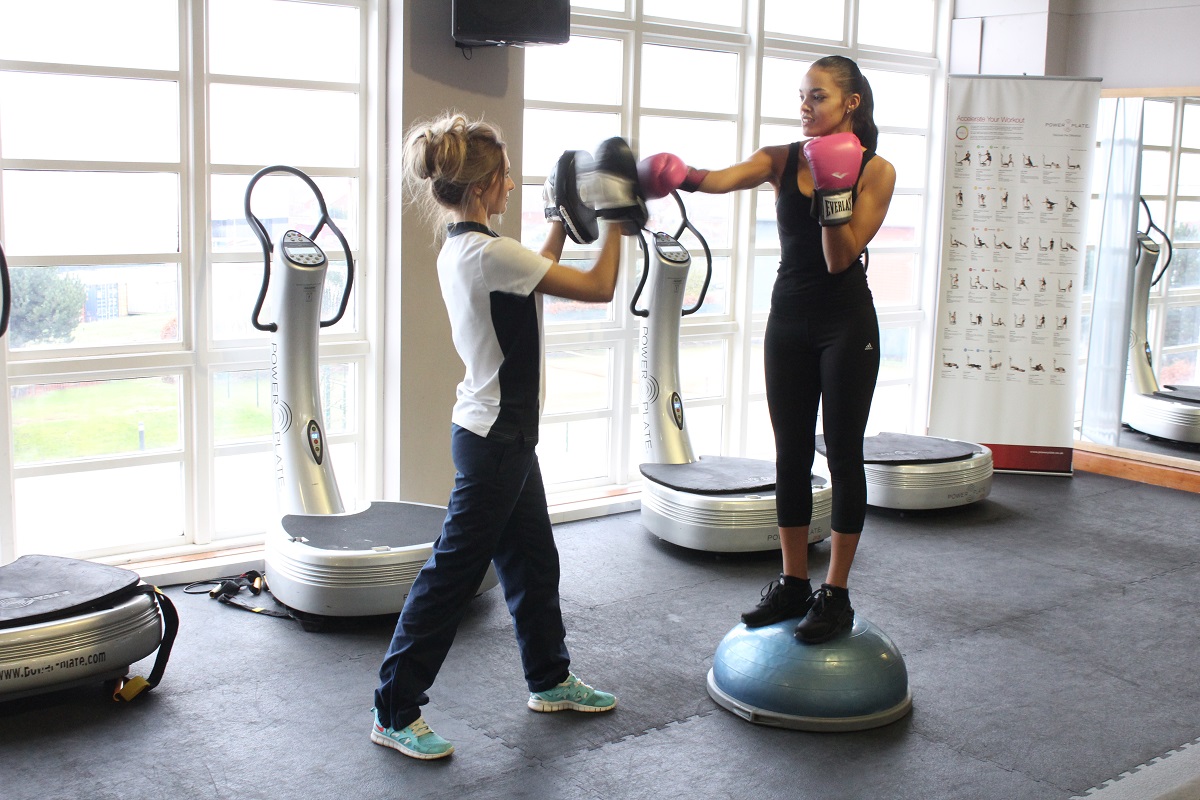


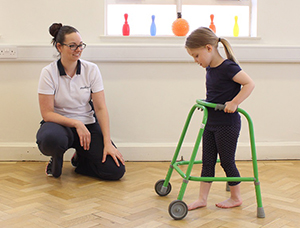
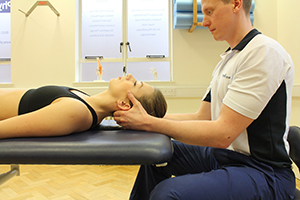
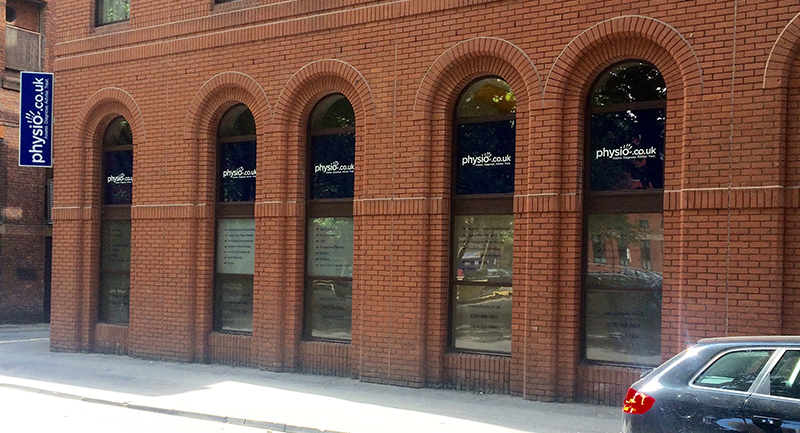
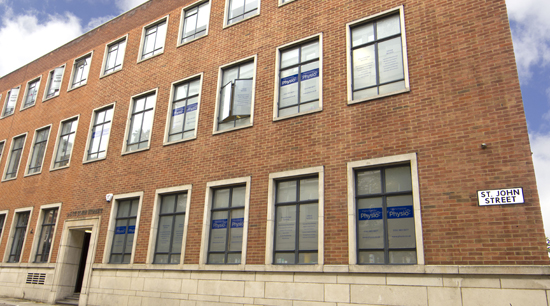


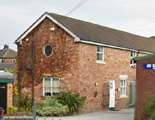
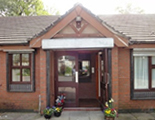



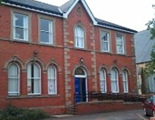



























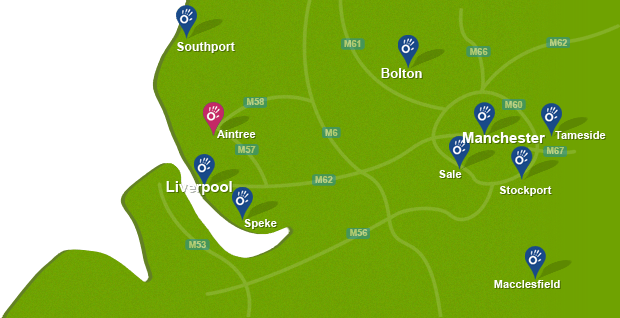

 f
f
